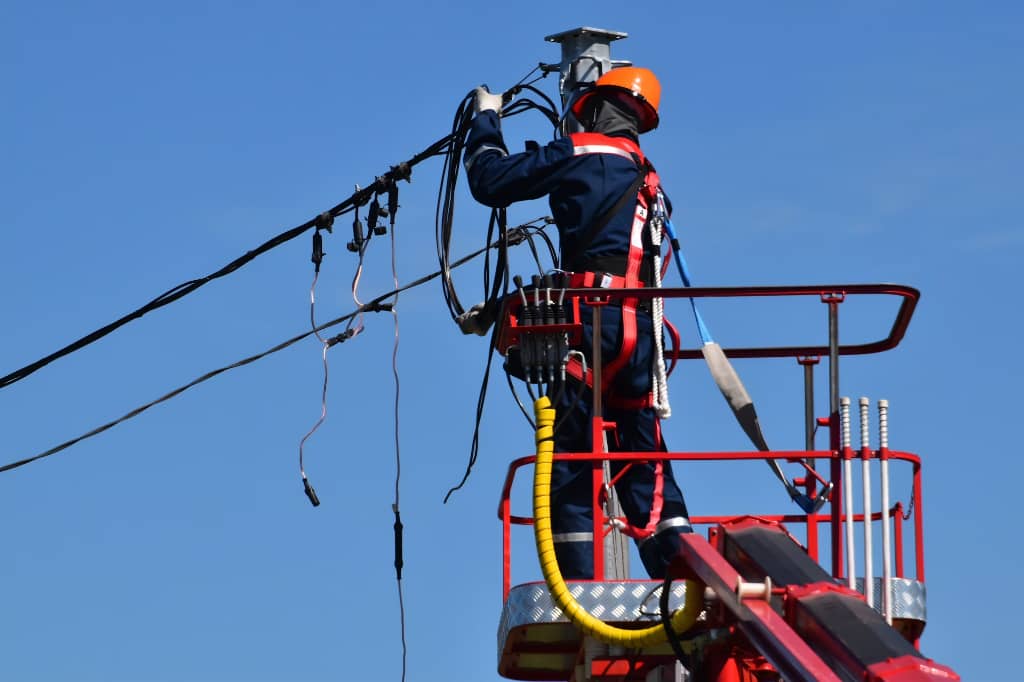Do you know that the electricity grids in Nigeria only cater to the power supply of 25% of the population? Nigerians are tired of the constant hum of generators, the smell of fumes that these generators produce, and the unwanted fuel costs that they have to endure for the sake of a reliable power supply.
Let aside the mental toll the people have to go through on a daily basis, the environmental toll is yet another issue inflicted by Nigeria’s power deficit. But what if we tell you that there is an environmentally friendly way to get a reliable power supply? We all have heard of solar panels used for producing electricity, but mostly people avoid them because of the high maintenance.
What if we can help you solve this high-maintenance problem and give you a better and reliable power supply with minor changes to your portable solar power supply, the Flexible FV Panels? Read on to learn more about this invention of time.
What Are Flexible PV Panels Made Of—and Why Should You Care?
Unlike traditional glass-covered rigid solar panels, most flexible PV panels are made using thin-film technologies, with CIGS (Copper Indium Gallium Selenide) standing out as the most advanced and reliable option.
CIGS is a semiconductor material that absorbs sunlight and converts it into electricity by forming a multi-layer thin film only a few micrometers thick. Unlike crystalline silicon, which needs a thick, rigid substrate, CIGS can be deposited on lightweight, flexible materials like ETFE or PET, making it ideal for curved surfaces and portable use.
This structure not only allows the panel to bend without cracking, but also enables it to maintain high efficiency (13–17%), even under partial shading or diffused light—conditions common in real-world outdoor applications across Nigeria. Strong performance in shaded or low-light environments, and excellent mechanical flexibility—all essential for real-world use in Nigeria, where sunlight conditions vary and power needs are increasingly mobile.
These thin films are deposited on lightweight substrates like ETFE or PET, making the panels ultra-lightweight, durable, and rollable—perfect for rooftops, RVs, small devices, or off-grid field setups.
For anyone seeking a portable solar solution that doesn’t compromise on efficiency or resilience, CIGS-based flexible PV panels are currently the most recommended choice.
How The Rigid Solar Panels Fail For Portable Applications In Nigeria
If you’re thinking about using flexible PV panels outdoors or on the go, there’s one more thing to check—make sure they meet international safety and durability standards. The good ones usually come with certifications like IEC 61215 for performance and IEC 61730 for electrical safety. These are global benchmarks that tell you the panel has been properly tested and can handle long-term use.
Also, keep an eye out for an IP65 rating or higher—this means the panel is protected against dust and water, which is super important in Nigeria’s tropical weather, where sudden rain or dust storms are pretty common.
The conventional rigid solar panels were revolutionary in solar energy adoption, and the world is thankful for this invention. However, with time, these kinds of panels presented certain limitations when employed with portable applications. Also, in Nigeria’s situation, the usage of portable applications has become a need. So, here are some reasons why rigid solar panels are no longer the best option:
The Huge Weight, The Bulk
Rigid panels are made with a heavy aluminum frame combined with a protective layer of tempered glass, making them heavy and bulky. Bringing you close to reality, a single panel weighs around 13-14 pounds (roughly 6-7 kilograms), which is a lot to handle. It is not easy to transport, accommodate, or even set up according to your preference.
This can be a burden rather than a relief for people who are always on the move, in disaster scenarios that need portability, or for off-grid communities. In simple words. The weight and bulk make it difficult to store and deploy.
Handle With Care Factor
As we said, the rigid solar panels have a layer of tempered glass on them to protect the inner layer. This glass makes it prone to damage from any impact that can occur during transportation, handling, and installation. There will always be a risk of the glass being cracked or shattered. If transporting in rough territories, during rapid installation, or during storms, you will always have the looming threat of the glass breaking.
Portable applications are designed for temporary and quick setup, whereas the rigid panels require proper mounting systems (drilling, fixing frames), which are not suitable for the portability factor.
Reasons Why Flexible PV Panels Are The Best Choice For Portable Solar Power
If you are considering whether Flexible PV panels would be a good option for portable solar power, then you are reading the right thing here. Let us tell you how these kinds of panels are worth investing in.
Reason 1 – So Light And So Thin
By the looks of it, you might wonder whether this thin sheet of PV would function, or if it is just another marketing tactic. Yes, it is lighter and thinner than the glass-based rigid panels, but it works as effectively as the rigid ones. This is light-weightedness and thinness are the key factors why most people are choosing the flexible PV panels for their portable solar power.
It is 80% lighter than the rigid panels. For example, a 100W flexible panel weighs around 4-5 pounds, while a 100W rigid panel weighs around 20 pounds. That’s a huge difference! It can be easily mounted on RV roofs that most Nigerian houses have. In fact, it is so thin that you can roll it in your backpack.
Reason 2 – Less Worry About Getting Shattered
People with rigid solar panels always worry about their panels breaking from any sort of impact. The good thing with flexible PV solar panels is that they are shockproof, which adds to their durability.
The durable polymers and thin film technology make these panels extremely resistant to impact, bending, and flexible. Emphasis is on the flexible part, which means these panels can be bent for over 30 degrees (depending on the composition and design) without cracking. No damage and no cracking!
Reason 3 – The Advantage Of Conformability
We all have desired to cover the nooks and crannies of our rooftops to get the maximum sunlight, but that was not possible with the rigid solar panels. Glad that now we have companies like PowerHome that make and supply flexible PV panels all across the country.
Flexible panels give you an edge to place them conformally onto the curved corners of your roofs, vehicles, boats, and camps. You can even place them on your wearable technology devices. Place them wherever you want.
Reason 4 – Easy To Install And Easy to Handle
It is almost like tossing on the roof, and the power supply is taken care of. You don’t need aluminum frames, bolts, and even professionals to help you install the panels. These flexible PV panels are usually installed using strong adhesives, Velcro, or simple fasteners. See, as we said, nothing much!
Reason 5 – Good Integration
With the flexibility, manageability, and conformability, we can say that you can further explore ways to integrate these flexible PV panels in your power supply systems. You can cover your vehicles to charge the battery, you can weave it into your tents while camping, and enjoy nature without worrying about power supply, you can paste it on your backpacks to charge your devices on the go. There might be more ways to integrate it!
Final Thoughts
According to the International Renewable Energy Agency (IRENA), flexible solar technologies are expected to play a major role in powering off-grid areas across Sub-Saharan Africa. Why? Because they’re easier to set up and work well with modular energy systems that are perfect for communities without reliable electricity.
In fact, a recent World Bank study on energy access in Nigeria found that mobile solar kits using flexible PV panels can be deployed up to 40% faster in rural areas compared to traditional rigid panels. That makes them a smart choice not just for everyday use, but also in emergencies, disaster relief situations, and for families who need portable power—fast.
Nigerian homes need reliable power solutions as they face frequent power outages due to limited grid accessibility in many regions. The lightweight and flexible PV panels help these people to get a strong portable solar power system without spending an arm and a leg. So, why not give this invention from PowerHome a try?






